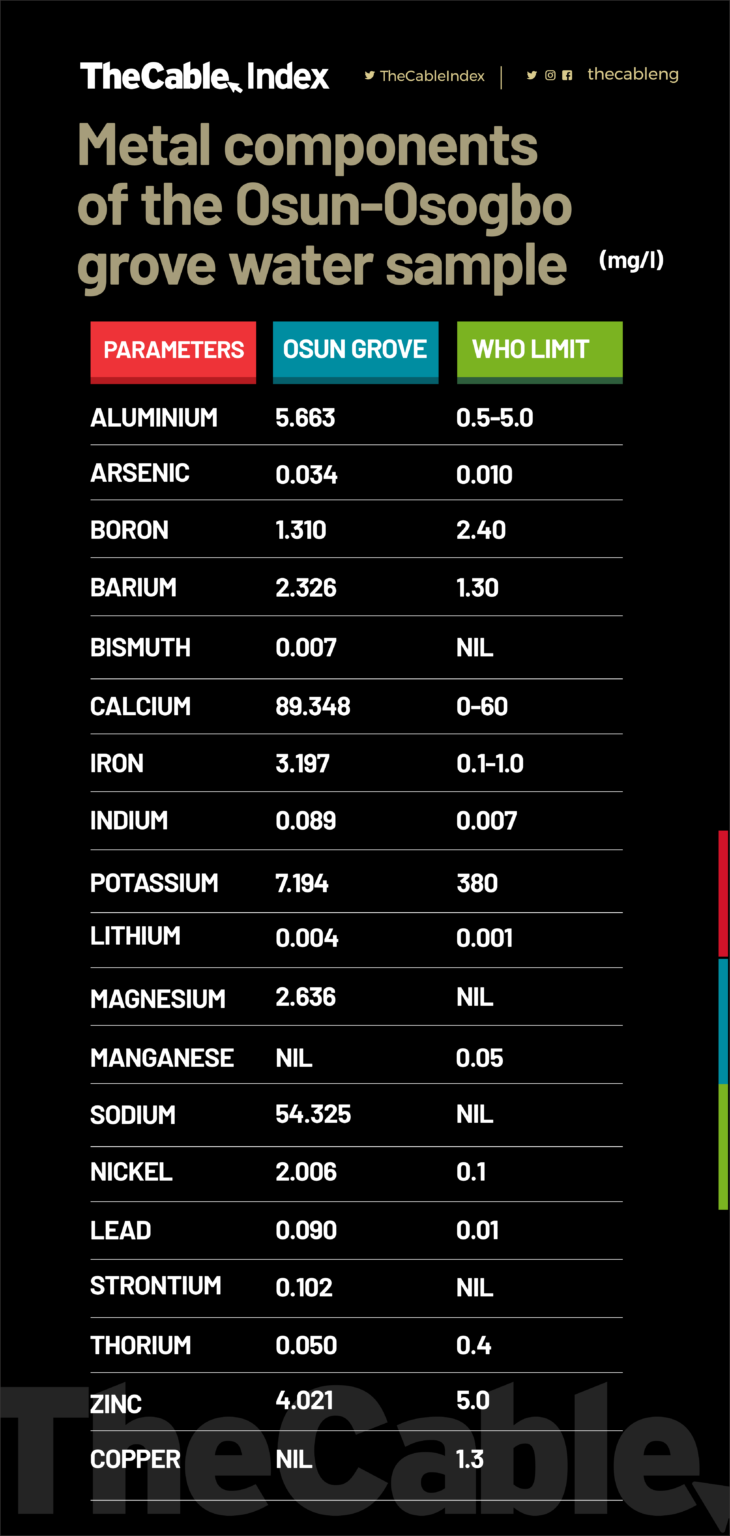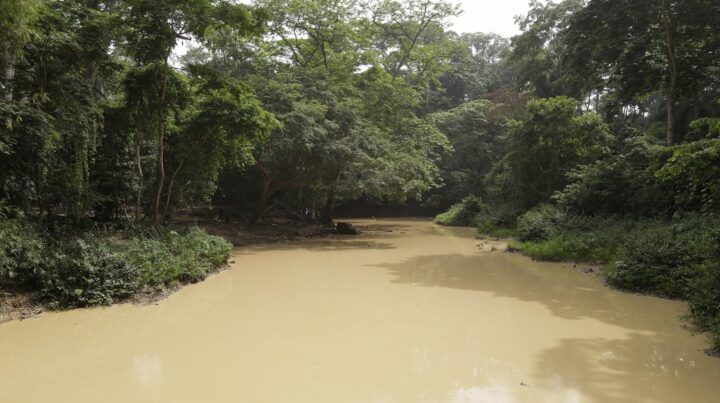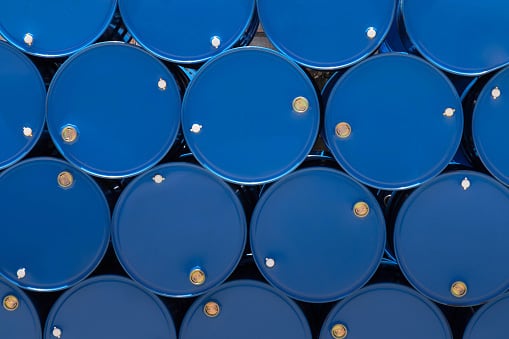The Osun grove has now turned brown and heavily contaminated with heavy metals. Photo credit: Samad Uthman/ TheCable.
Following TheCable’s investigation into the pollution of the Osun river, Abdullahi Binuyo, deputy chief of staff to Gboyega Oyetola, governor of the state, says the state will carry out a clean-up of the sacred grove.
Binuyo said this on Tuesday while speaking on TheCable’s Twitter space titled, ‘Poverty, pollution…Osun people suffering the effects of illegal mining’.
TheCable on Monday published an investigation into how mining activities in Ilesa communities (otherwise called Ijesha) in Osun state have polluted the water body on the popular Osun-Osogbo grove — an extension of which is washed down to Asejire dam.
Ijesha land is renowned for large gold deposits and other minerals. Owing to the heightened mining activity, waste, heavy metals, volatile organic compounds (VOCs) and chemicals are washed into the river.
Advertisement
According to Binuyo, the state government has sought the services of an environmental consultant for the clean-up of the Osun river.
He said details of the project will be made public soon.
“In terms of the clean-up, the plan is underway to support the people wherever there is inadequate access to water. The government has a response that will be made public soon and ensure the clean-up of the Osun river and the grove,” he said.
Advertisement
Binuyo said the state government’s enquiry into the pollution of the river showed that “because of the mining activities at the abandoned sites over the years, you have this group of illegal miners, sometimes legal; they dig some sink holes into the ground around where they are mining, and during raining seasons they get flooded and wash off the mud, and that’s why you see the discolouration of the river over time”.
“Our intention is to ensure we seal-off all of these abandoned sites and ensure that we have the free flow of water and at the same time enforce continuous assessment to stop mining around tributaries that supply the Osun river,” he said.
TheCable had subjected a sample of the Osun-Osogbo grove water to a test conducted by UNILAG Consult. It was found to contain 0.034 milligrams per litre (mg/L) of arsenic, 5.663 mg/L of aluminium, and 0.090 mg/L of lead. Other heavy metals found, according to the test result, include Barium (2.326), Lithium(0.004), Nickel(2.006), and Iron (3.197).
These heavy metals were found to be significantly above the limit prescribed by the World Health Organisation (WHO).
Advertisement

Urban Alert, a civic-tech initiative leveraging technology to amplify the yearnings of the masses, said a health crisis is inevitable if the over two million people living in more than 20 communities in Osun state continue to get exposed to the contaminated water.
He said from the group’s research into the contamination, one million resident traditionalists; 100 million African traditional religion practitioners worldwide, and 42.5 million Yoruba people may not be spared as (in)direct victims.
“In fact, our data has shown that 100,000 people may be facing serious medical challenges before 2032 if the situation is not arrested and the proper remediation process does not begin,” Anthony Adejuwon, Urban Alert team lead, told TheCable.
Advertisement
Add a comment






